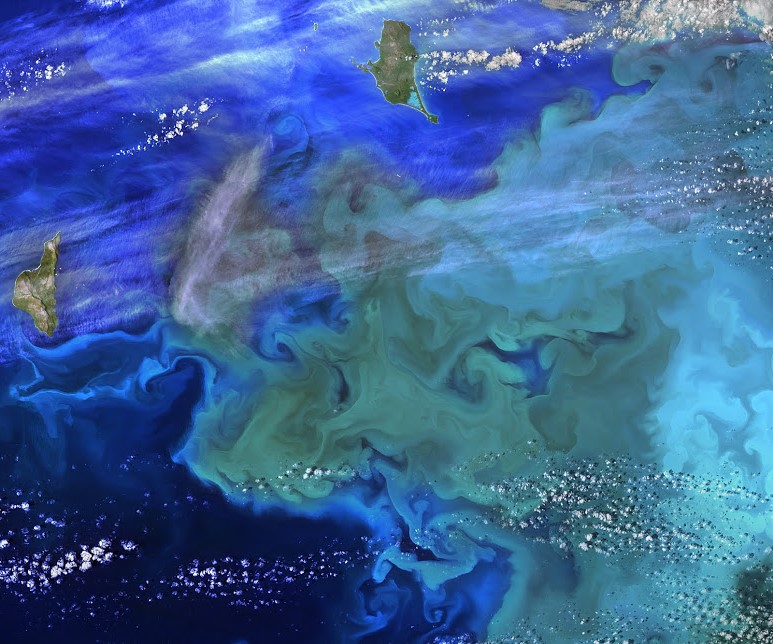TinyBlueGreen: Difference between revisions
Siterunner (talk | contribs) No edit summary |
Siterunner (talk | contribs) No edit summary |
||
| Line 22: | Line 22: | ||
Phytoplankton are responsible for much of the oxygen present in the Earth’s atmosphere – half of the total amount produced by all plant life. | Phytoplankton are responsible for much of the oxygen present in the Earth’s atmosphere – half of the total amount produced by all plant life. | ||
See Prochlorococcus | See [https://en.wikipedia.org/wiki/Cyanobacteria Prochlorococcus] | ||
Cyanobacteria /saɪˌænoʊbækˈtɪəriə/, also known as Cyanophyta, is a phylum of bacteria that obtain their energy through photosynthesis.[4] The name "cyanobacteria" comes from the color of the bacteria (Greek: κυανός (kyanós) = blue). They are often called blue-green algae... | |||
https://upload.wikimedia.org/wikipedia/commons/thumb/5/5b/Tolypothrix_%28Cyanobacteria%29.JPG/220px-Tolypothrix_%28Cyanobacteria%29.JPG | |||
○ | ○ | ||
Revision as of 22:15, 12 February 2016
Blue-Green Is Life
"A single kind of blue-green algae in the ocean produces the oxygen in one of every five breaths we take..."
2015
Big Trouble Ahead for Ocean Plankton
○
References
Wikipedia -- Phytoplankton obtain energy through the process of photosynthesis and must therefore live in the well-lit surface layer (termed the euphotic zone) of an ocean, sea, lake, or other body of water. Phytoplankton account for half of all photosynthetic activity on Earth.
Phytoplankton are responsible for much of the oxygen present in the Earth’s atmosphere – half of the total amount produced by all plant life.
See Prochlorococcus
Cyanobacteria /saɪˌænoʊbækˈtɪəriə/, also known as Cyanophyta, is a phylum of bacteria that obtain their energy through photosynthesis.[4] The name "cyanobacteria" comes from the color of the bacteria (Greek: κυανός (kyanós) = blue). They are often called blue-green algae...
○
